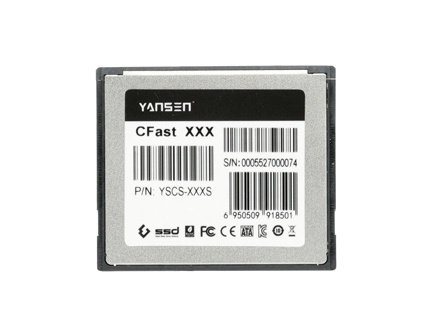The Difference Between Industrial Solid-state Drives And Ordinary Hard Drives
(2023年07月06日)Industrial solid state drives (SSDs) and ordinary solid state hard drives are two different types of storage devices used in various applications. However, they differ in certain aspects, including the level of durability, performance, and security. This article aims to explore the fundamental differences between industrial solid-state drives and ordinary hard drives.
Solid State Drives
Solid State Drives or SSDs for short, are basically the same as regular hard drives in terms of shape and size. The use environment and scenario can be divided into industrial Chinese SSD drive and consumer SSD, the biggest difference between the two is reliability and longevity.
Consumer SSDs
Consumer SSDs are generally used for commercial or personal applications and work in general environments, so they do not have high requirements for use environments, with a shelf life of generally one year and an operating temperature of generally 0°C-70°C. The main competitive advantage is read and writes speed, with many consumer SSDs advertising read and write speeds of over 500MB/s, a very significant improvement over mechanical hard drives. The main advantages of industrial SSDs over consumer-grade are reliability, endurance, and stability. The most important of these is the operating temperature, generally industrial SSDs are used in all kinds of harsh environments, such as high temperature, high humidity, low-temperature environments, field, or special industries, so the applicable temperature of industrial SSDs is generally -40°C to 85°C.
What is an Industrial SSD?
An industrial solid state hard drive is a type of solid-state drive designed for use in industrial applications that require higher environmental tolerance and greater durability than regular consumer or commercial drives. These industrial ssd drives are typically built with industrial-grade components and are tested to withstand harsh environments, extreme temperatures, and high levels of shock and vibration.
Industrial SSDs
Industrial SSD generally uses MLC particles, while most consumer-grade are MLC or TLC, so the lifespan of industrial SSDs is also much higher than consumer-grade, with a typical shelf life of 5 years, while consumer-grade generally have a shelf life of one year. Industrial SSDs also have an advantage in terms of reliability and stability, and industrial SSDs maximize the protection of user data from errors and may have additional features such as accidental power failure protection and data encryption. There are also features like shock and drop protection. Of course, industrial SSDs have a lot of benefits, but compared to consumer SSDs are naturally much more expensive, we personally use consumer-grade can meet the needs of industrial or harsh environment use then it is best to use industrial SSDs, these are more secure some.
- このできごとのURL:



コメント